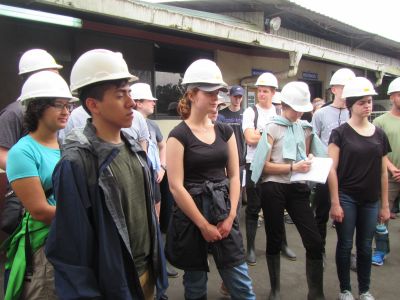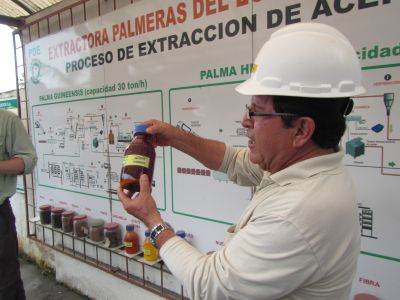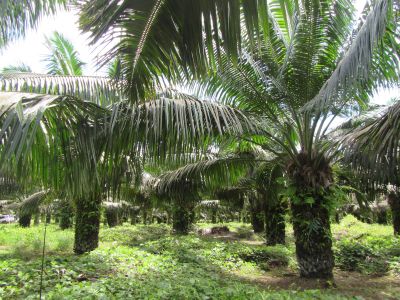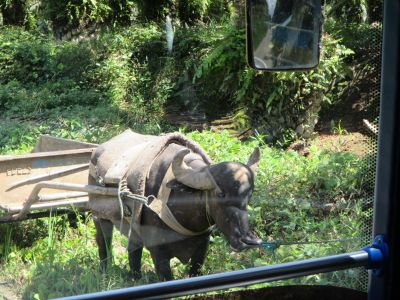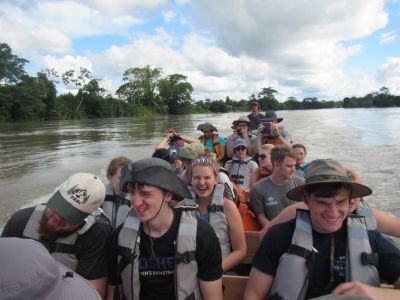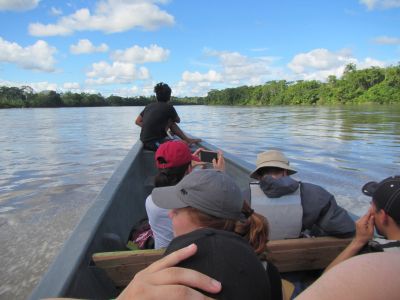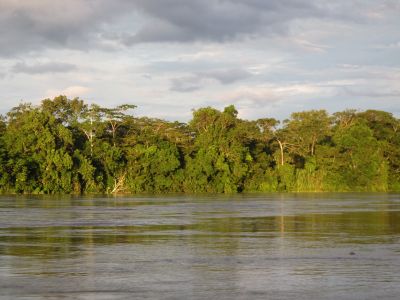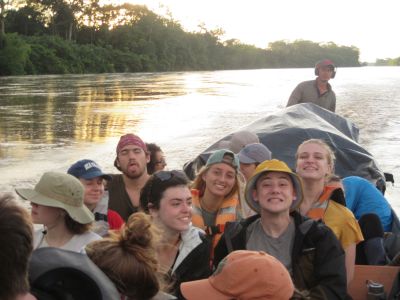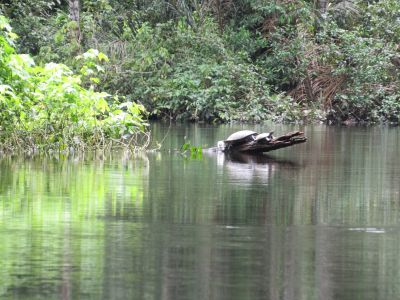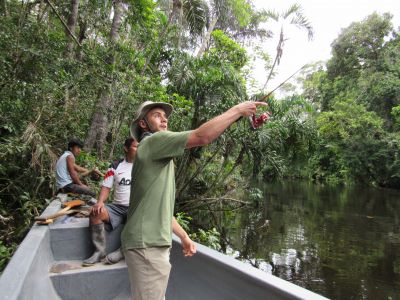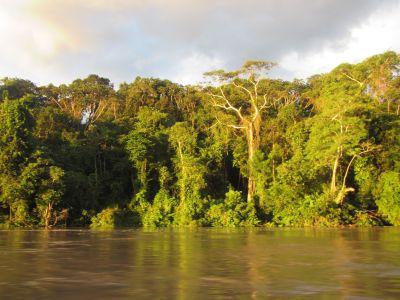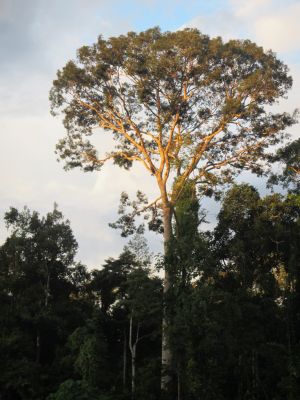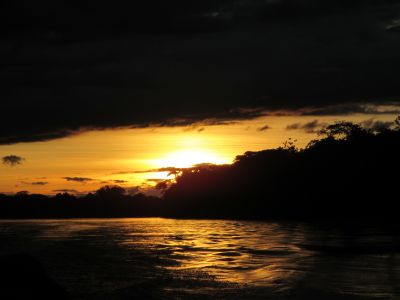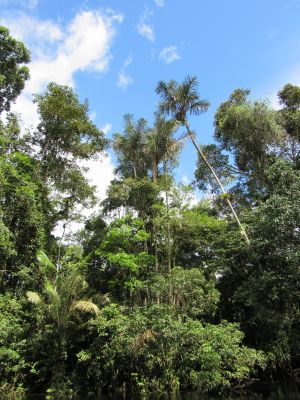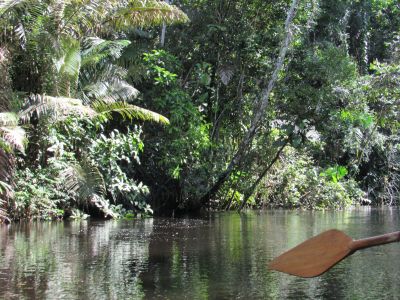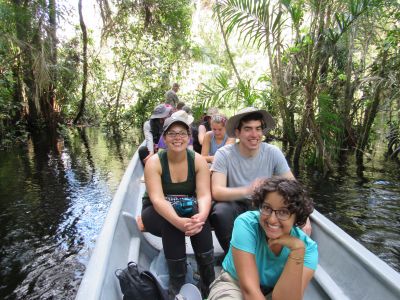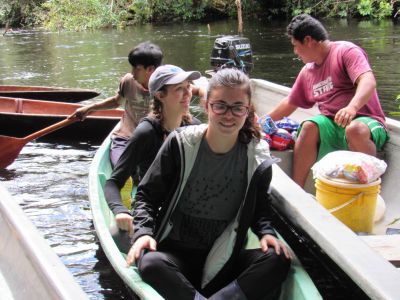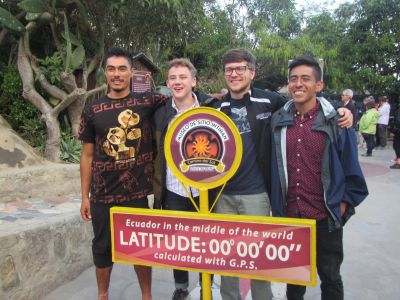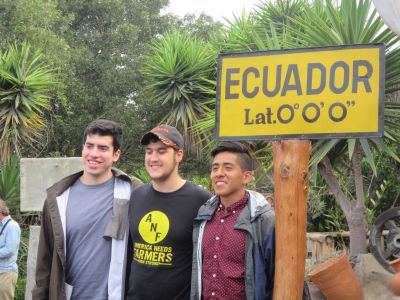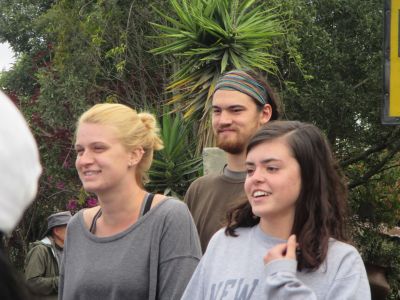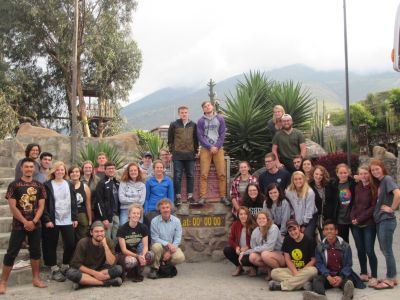I can’t count how many times I heard this word during our time together in Ecuador — “awesome!”
On our last night before departure, we gathered around a fire in the rolling hills outside of Otavalo and recounted the most memorable moments of the last three weeks. We heard harrowing stories of paddling through class IV rapids on the Jondachi River, climbing the 15,000+ peak known as Rucu Pichincha, and floating past woolly monkeys, fresh water dolphins, charapa turtles and spectacled caimans on the Zabalo River. Testing our limits and trying new experiences became a theme for the course — experiential learning at its best.
The course concluded with our final retreat at San Juan de la Vega, a former hacienda in the foothills of the Andes. Students engaged in structured debates on the effectiveness of the Ecuadorian economy from a triple-bottom-line perspective: Profit, People and Planet.
Then we reflected on the impact of our own travels, both positive and negative. The connections we made, the relationships we forged and the learning we enjoyed required us to travel to the far reaches of Ecuador. But the use of fossil fuels to power our airline, bus and boat travel contribute to climate change, destruction of the land, and the pollution of the rivers — all caused by oil extraction and the roads and pipelines that are required to get the black gold from the jungle to the coast and beyond. The United States is one of the principal customers of Ecuadorian crude.
Fortunately, we can do something about the negative impacts of fossil fuel use. Specifically, we can contribute to the conservation of the primary forests we grew to appreciate during our time in the village of Zabalo and the Cofan lands that surround it. Our travel was responsible for about 80 metric tons of carbon dioxide equivalent emissions, and we are on-setting this with a donation to the Cofan Survival Fund.
It is vital to our planet, our economy and our health that we not only acknowledge the downsides of our travel and other consumptive activities, but that we take action now to mitigate the harm and help create a world that is more just, sustainable and productive. Our contribution to the Cofan, guardians of the rain forest, is one way to raise our awareness and provide the support our indigenous sisters and brothers need to conserve the 400,000 hectares (over 1,000,000 acres) in their care.
To learn more about “carbon on-setting” and Cofan Survival Fund, visit earthdeeds.org and cofan.org.
A final thought:
If our current economic system is like the Titanic, headed for trouble, there are two things we can do. The obvious is to shout out the alarm and hope the people on board listen, understand and somehow turn the ship around. The alternative is to build a better ship, pull it up alongside the Titanic, and invite those headed toward disaster to join us. And if they like what they see, and notice how much fun we’re having, they might just jump ship and join us our journey to a more just, productive and sustainable future. Let it be so.
Jerrell Ross Richer, Carl Kreider Professor of Economics





